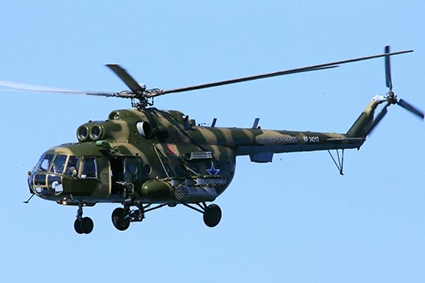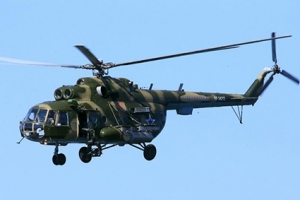Georgia: Diplomacy Not Guns
On December 9th, a Russian helicopter violated Georgian airspace triggering concern from the Georgian side.
Following the occurrence, the Georgian Foreign Ministry (MFA) released a statement calling it a provocation from the Russian side.
“On 9th December 2015, at about 18:48, an unmanned Russian aerial vehicle illegally deployed in the occupied Tskhinvali region violated the airspace controlled by Georgian central authorities and flew over the checkpoints of the Ministry of Internal Affairs of Georgia in the villages of the Gori district, Koshka and Gugutiantkari,” the MFA said.
The act has been named a provocation by Georgian officials who say it was directed against the sovereign state, providing further evidence of the Russian Federation’s defiance of the fundamental norms and principles of international law.
The MFA has called upon the Russian Federation to comply with its commitments under international law, including those under the 12th August 2008 Ceasefire Agreement.
Meanwhile, Cory Welt, Professor of International Affairs at George Washington University, says Georgia would face an immediate threat if a conflict between Armenia and Azerbaijan would escalate in light of the Turkish-Russian hostility.
“I think the direct threat for Georgia is possible escalation of a conflict between Armenia and Azerbaijan, especially if the conflict indirectly reflects the Turkey-Russia conflict,” Welt said.
According to Welt, diffusion of the heated environment is pressing.
“Georgia’s airspace has already been violated several times, and I think it is the kind of pressure which needs a responsive reaction,” he said.
The expert underlined that - whether Georgia receives MAP or membership of NATO or not - it should actively continue to develop the NATO Training Center in Tbilisi.
“The United States must keep close ties with Georgia in various fields. In the end, Georgia is not a direct victim in this new reality, however, the situation certainly contains some threats,” Welt said.
Analysis:
Such aberrant movements from Russia in Georgia’s occupied regions and on the occupation lines have been less surprising as Russia has repeatedly violated Georgian airspace this year, though I do not seek to excuse them.
The Georgian government unlike Turkey, which shot down a Russian jet last month, is unable to be adequately responsive to the violations though it has the same sovereign right as Turkey to intercept any unknown objects illegally crossing Georgian airspace.
Instead, Georgia relies on her active diplomacy to involve her international partners in the process and reduce these signals of intimidation from the country that has already occupied one fifth of Georgia’s territory.
Questions, such as the potential of an attempt by Russia to utilize Georgia and/or Armenia as buffer zones in case of a Russia-Turkey escalation, still remains at least reasonable for experts. While the majority of international political commentators and analysts expect no direct clash between the two large powers of the region, history knows not a single fact of Turkey-Russia war in the absence of NATO and globalization.
Are the Turkish and Russian governments only demonstratively brandishing their swords or should we expect further hostilities in the pursuit of geostrategic interests?
Georgia, as a small state of the region with a strategic location, has no alternative other than proactive diplomacy, strategy-based foreign policy and robust local institutions to provide security.
Zviad Adzinbaia












